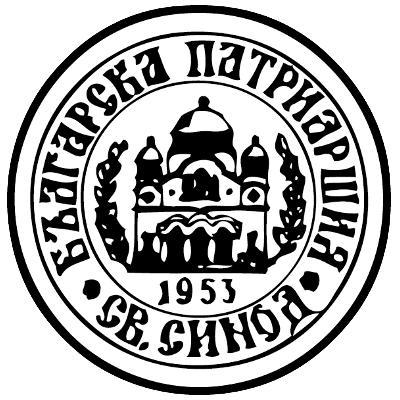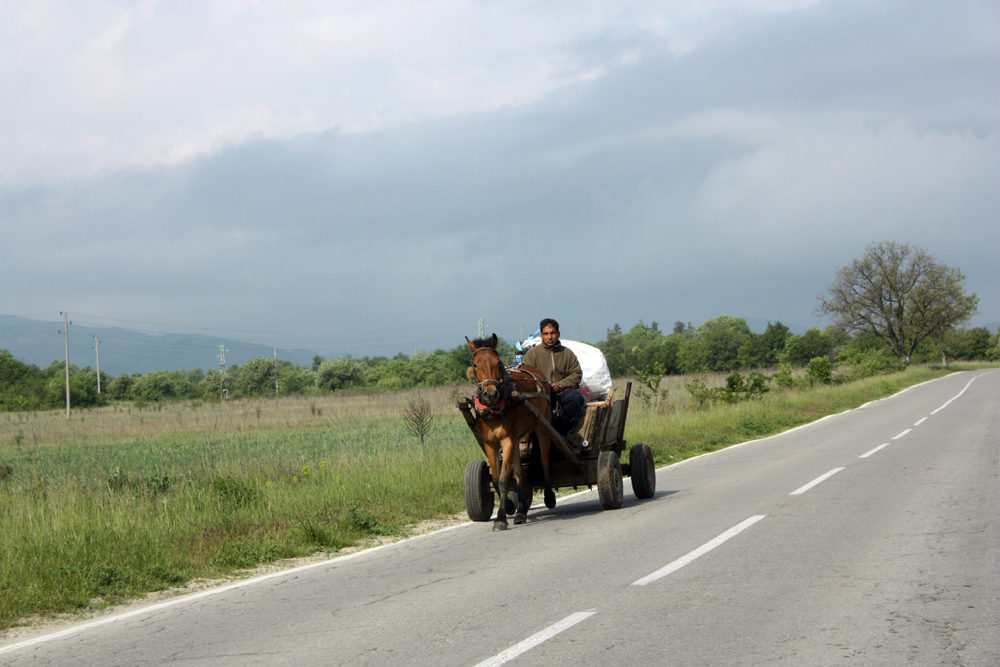|
Alfatar Municipality
Alfatar Municipality ( bg, Община Алфатар) is a small municipality ('' obshtina'') in Silistra Province, Northeastern Bulgaria, located in the Danubian Plain, in the area of the South Dobrudzha geographical region, about 15 km south of Danube river. It is named after its administrative centre - the town of Alfatar. The municipality embraces a territory of 248.57Characterization of Silistra Province km² with a population of 3,324 inhabitants, as of December 2009.Bulgarian National Statistical Institute - Bulgarian provinces and municipali ... [...More Info...] [...Related Items...] OR: [Wikipedia] [Google] [Baidu] |
Municipalities Of Bulgaria
The 28 Provinces of Bulgaria, provinces of Bulgaria are divided into 265 municipalities (община, ''obshtina''). Municipalities typically comprise multiple towns, villages and settlements and are governed by a mayor who is elected by popular majority vote for a four-year term, and a municipal council which is elected using proportional representation for a four-year term. The creation of new municipalities requires that they must be created in a territory with a population of at least 6,000 and created around a designated settlement. They must also be named after the settlement that serves as the territory's administrative center, among other criteria. The council of a municipality is further permitted to create administrative subdivisions: mayoralties (''kmetstvo''), settlements (''naseleno myasto''), and wards or quarters (''rayon''). Mayoralties are overseen by elected mayors and typically comprises one or more villages or towns; they must contain a population of at leas ... [...More Info...] [...Related Items...] OR: [Wikipedia] [Google] [Baidu] |
Protestantism In Bulgaria
Protestantism is a branch of Christianity that follows the theological tenets of the Protestant Reformation, a movement that began seeking to reform the Catholic Church from within in the 16th century against what its followers perceived to be growing errors, abuses, and discrepancies within it. Protestantism emphasizes the Christian believer's justification by God in faith alone (') rather than by a combination of faith with good works as in Catholicism; the teaching that salvation comes by divine grace or "unmerited favor" only ('); the priesthood of all faithful believers in the Church; and the ''sola scriptura'' ("scripture alone") that posits the Bible as the sole infallible source of authority for Christian faith and practice. Most Protestants, with the exception of Anglo-Papalism, reject the Catholic doctrine of papal supremacy, but disagree among themselves regarding the number of sacraments, the real presence of Christ in the Eucharist, and matters of ecclesiastical ... [...More Info...] [...Related Items...] OR: [Wikipedia] [Google] [Baidu] |
Catholicism In Bulgaria
The Catholic Church is the fourth largest religious congregation in Bulgaria, after Eastern Orthodoxy, Islam and Protestantism. Its roots in the country date to the Middle Ages and are part of the worldwide Catholic Church, under the spiritual leadership of the Pope in Rome. Location and number In the Bulgarian census of 2011, a total of 48,945 people declared themselves to be Catholics, up from 43,811 in the previous census of 2001 though down as compared to 53,074 in 1992. The vast majority of the Catholics in Bulgaria in 2001 were ethnic Bulgarians and the rest belonged to a number of other ethnic groups such as Croatians, Italians, Arabs and Germans. Bulgarian Catholics live predominantly in the regions of Svishtov and Plovdiv and are mostly descendants of the heretical Christian sect of the Paulicians, which converted to Catholicism in the 16th and 17th centuries. The largest Catholic Bulgarian town is Rakovski in Plovdiv Province. Ethnic Bulgarian Catholics known as the B ... [...More Info...] [...Related Items...] OR: [Wikipedia] [Google] [Baidu] |
Bulgarian Orthodox Church
The Bulgarian Orthodox Church ( bg, Българска православна църква, translit=Balgarska pravoslavna tsarkva), legally the Patriarchate of Bulgaria ( bg, Българска патриаршия, links=no, translit=Balgarska patriarshiya), is an autocephalous Orthodox jurisdiction. It is the oldest Slavic Orthodox church, with some 6 million members in Bulgaria and between 1.5 and 2 million members in a number of European countries, the Americas, Australia, New Zealand and Asia. It was recognized as autocephalous in 1945 by the Ecumenical Patriarchate of Constantinople. History Early Christianity The Bulgarian Orthodox Church has its origin in the flourishing Christian communities and churches set up in the Balkans as early as the first centuries of the Christian era. Christianity was brought to the Balkans by the apostles Paul and Andrew in the 1st century AD, when the first organised Christian communities were formed. By the beginning of the 4th ce ... [...More Info...] [...Related Items...] OR: [Wikipedia] [Google] [Baidu] |
Roma In Bulgaria
Romani people in Bulgaria (; ) constitute Europe's densest gypsy minority. The Romani people in Bulgaria may speak Bulgarian, Turkish or Romani, depending on the region. According to the latest census in 2011, the number of the Romani is 325,343, constituting 4.4% of the total population, in which only one ethnic group could be opted as an answer and 10% of the total population did not respond to the question on ethnic group. In a conclusive report of the census sent to Eurostat, the authors of the census (the National Statistical Institute of Bulgaria) identified the census results on ethnicity as a "gross manipulation". The former head of the National Statistical Institute of Bulgaria, Reneta Indzhova claims to have been fired by the Bulgarian Prime Minister in 2014 for attempting to check the actual number of the Romani and implied that neither the census did enumerate the Romani, nor its statistics did provide the "real data". The previous 2001 census recorded 370, ... [...More Info...] [...Related Items...] OR: [Wikipedia] [Google] [Baidu] |
Bulgarians In Bulgaria
Bulgarians are the main ethnic group in Bulgaria, according to the census of the population in 2011 they are 6,000,000 people, or 86% of the country's population. Number and share Censuses Number and share of Bulgarians according to the census over the years: Number and share of Bulgarians according to the census over the years by provinces: See also *Demographics of Bulgaria The demography of the Republic of Bulgaria is monitored by the National Statistical Institute of Bulgaria. This article is about the demographic features of the population of Bulgaria, including population density, ethnicity, education level ... References !Bulgaria Ethnic groups in Bulgaria {{Bulgaria-stub ... [...More Info...] [...Related Items...] OR: [Wikipedia] [Google] [Baidu] |
Roma People In Bulgaria
Romani people in Bulgaria (; ) constitute Europe's densest gypsy minority. The Romani people in Bulgaria may speak Bulgarian, Turkish or Romani, depending on the region. According to the latest census in 2011, the number of the Romani is 325,343, constituting 4.4% of the total population, in which only one ethnic group could be opted as an answer and 10% of the total population did not respond to the question on ethnic group. In a conclusive report of the census sent to Eurostat, the authors of the census (the National Statistical Institute of Bulgaria) identified the census results on ethnicity as a "gross manipulation". The former head of the National Statistical Institute of Bulgaria, Reneta Indzhova claims to have been fired by the Bulgarian Prime Minister in 2014 for attempting to check the actual number of the Romani and implied that neither the census did enumerate the Romani, nor its statistics did provide the "real data". The previous 2001 census recorded 370,90 ... [...More Info...] [...Related Items...] OR: [Wikipedia] [Google] [Baidu] |
Turks In Bulgaria
Bulgarian Turks ( bg, български турци, bŭlgarski turtsi, tr, Bulgaristan Türkleri) are a Turkish people, Turkish ethnic group from Bulgaria. According to the 2021 census, there were 508,375 Bulgarians of Turkish descent, roughly 8.4% of the population, making them the country's largest ethnic minority. Bulgarian Turks also comprise the largest single population of Turks in the Balkans. They primarily live in the southern province of Kardzhali Province, Kardzhali and the northeastern provinces of Shumen Province, Shumen, Silistra Province, Silistra, Razgrad Province, Razgrad and Targovishte Province, Targovishte. There is also a diaspora outside Bulgaria in countries such as Turkey, Austria, the Netherlands, Sweden, Norway and Romania, the most significant of which are the Bulgarian Turks in Turkey. Bulgarian Turks are the descendants of Turkish people, Turkish settlers who entered the region after the Ottoman Empire, Ottoman conquest of the Balkans in the la ... [...More Info...] [...Related Items...] OR: [Wikipedia] [Google] [Baidu] |
Bulgarians
Bulgarians ( bg, българи, Bǎlgari, ) are a nation and South Slavic ethnic group native to Bulgaria and the rest of Southeast Europe. Etymology Bulgarians derive their ethnonym from the Bulgars. Their name is not completely understood and difficult to trace back earlier than the 4th century AD, but it is possibly derived from the Proto-Turkic word ''*bulģha'' ("to mix", "shake", "stir") and its derivative ''*bulgak'' ("revolt", "disorder"). Alternative etymologies include derivation from a compound of Proto-Turkic (Oghuric) ''*bel'' ("five") and ''*gur'' ("arrow" in the sense of "tribe"), a proposed division within the Utigurs or Onogurs ("ten tribes"). Citizenship According to the Art.25 (1) of Constitution of Bulgaria, a Bulgarian citizen shall be anyone born to at least one parent holding a Bulgarian citizenship, or born on the territory of the Republic of Bulgaria, should they not be entitled to any other citizenship by virtue of origin. Bulgarian citizenship sh ... [...More Info...] [...Related Items...] OR: [Wikipedia] [Google] [Baidu] |
Vasil Levski, Silistra Province
Vasil (Bulgarian and Macedonian: Васил, Georgian: ვასილ) is a Bulgarian, Macedonian and Georgian masculine given name. It may refer to: *Vasil Adzhalarski, Bulgarian revolutionary, an IMARO leader of revolutionary bands * Vasil Amashukeli (1886–1977), early Georgian film director & cinematographer in Azerbaijan and Georgia *Vasil Angelov (1882–1953), Bulgarian military officer and a revolutionary, a worker of IMARO *Vasil Aprilov (1789–1847), Bulgarian educator * Vasil Barnovi (1856–1934), Georgian writer popular for his historical novels *Vasil Biľak (born 1917), former Slovak Communist leader of Rusyn origin *Vasil Binev (born 1957), Bulgarian actor *Vasil Boev (born 1988), Bulgarian footballer * Vasil Bollano, the ethnic Greek mayor of Himara municipality, in southwest Albania *Vasil Bozhikov (born 1988), Bulgarian football defender *Vasil Bykaŭ (1924–2003), prolific Belarusian author of novels and novellas about World War II *Vasil Chekalarov (1874– ... [...More Info...] [...Related Items...] OR: [Wikipedia] [Google] [Baidu] |
Tsar Asen, Silistra Province
Tsar ( or ), also spelled ''czar'', ''tzar'', or ''csar'', is a title used by East Slavs, East and South Slavs, South Slavic monarchs. The term is derived from the Latin word ''Caesar (title), caesar'', which was intended to mean "emperor" in the European medieval sense of the term—a ruler with the same rank as a Roman emperor, holding it by the approval of another emperor or a supreme ecclesiastical official (the Pope or the Ecumenical Patriarch)—but was usually considered by western Europeans to be equivalent to "king". It lends its name to a system of government, tsarist autocracy or tsarism. "Tsar" and its variants were the official titles of the following states: * Bulgarian Empire (First Bulgarian Empire in 681–1018, Second Bulgarian Empire in 1185–1396), and also used in Kingdom of Bulgaria, Tsardom of Bulgaria, in 1908–1946 * Serbian Empire, in 1346–1371 * Tsardom of Russia, in 1547–1721 (replaced in 1721 by ''imperator'' in Russian Empire, but still re ... [...More Info...] [...Related Items...] OR: [Wikipedia] [Google] [Baidu] |




